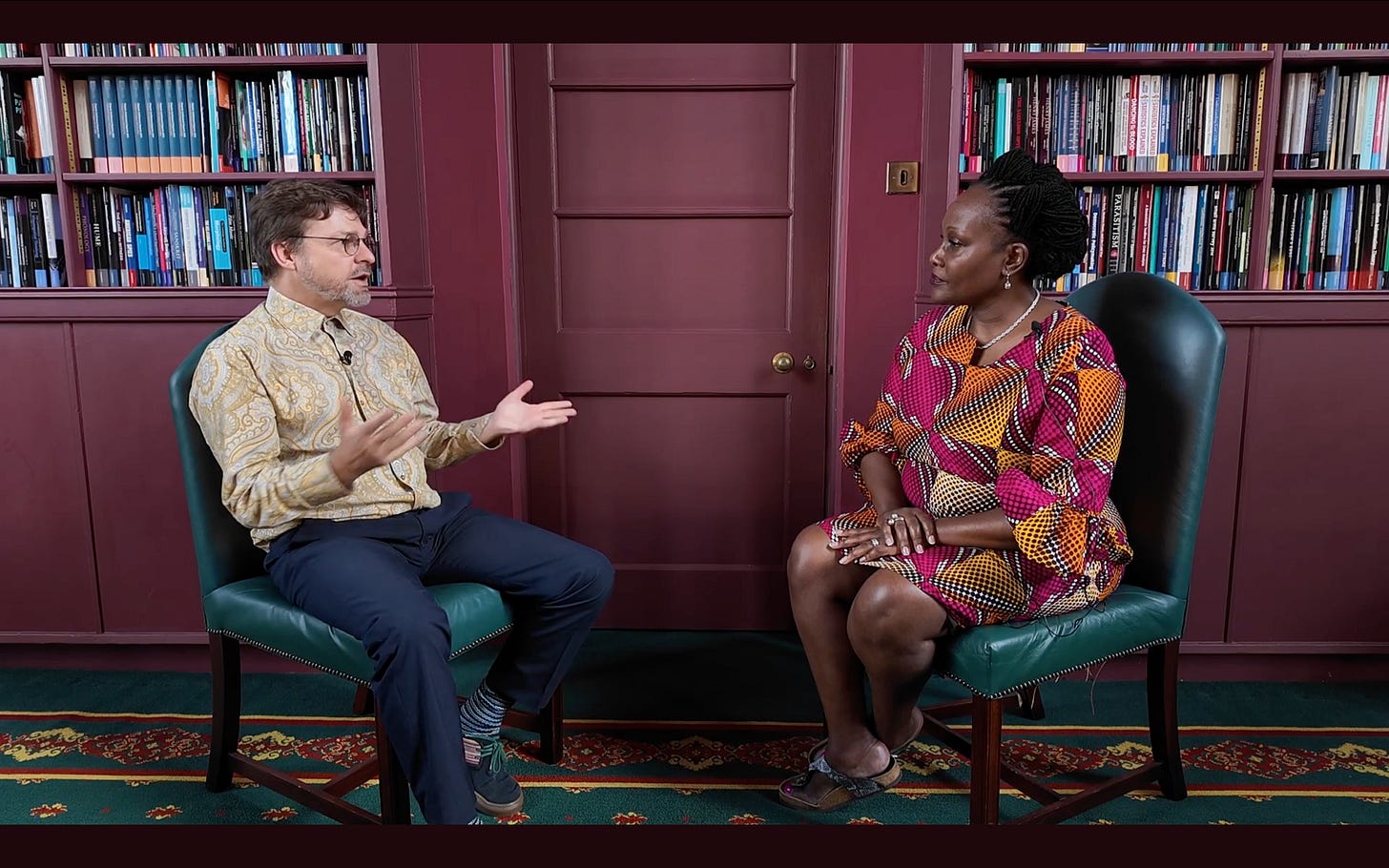Does the system thrive when you thrive?
Part 1 of a conversation with the Aspen Initiative Africa
During summer, I sat down in Cambridge, UK, with Laila Macharia, Director of the Aspen Initiative Africa, host of their Factivist podcast, which features “compelling conversations from the world's most influential thought leaders, bringing you fresh takes on Africa's past, present and future”. Here is the first of a series of extracts from the conversation that I think you will find interesting.
The essence of thriving
Laila Macharia: It's lovely to be spending time with you here at Cambridge University Professor Wayne Visser to discuss your book Thriving. So maybe you can tell us a little bit about the context or the frame in which you see us as a human race that made you think about writing this book?
Wayne Visser: It's great to be talking with you and to be here in Cambridge. I feel I'm also connecting back to my roots, because I was born in Zimbabwe and grew up in South Africa. And most of my career has been spent on sustainable development, particularly as it relates to business. After more than 30 years, what I realised is that we're failing to communicate that a sustainable future is a better future.
We're also failing on many of the challenges—social challenges, environmental challenges. In fact, we are living in a world of breakdowns. What I try to do in the book is to track those breakdowns in six areas, but to frame it in a way that, actually, these are opportunities for breakthroughs, for bringing solutions—and to give evidence with hundreds of examples that there are innovations happening that are scaling in all of these six areas.
[It’s important] that we don't get stuck in the problems, and we don't feel like we’re constantly failing in creating a more sustainable future, but rather that we're in a most exciting time where, finally, we have many of the solutions, and they're starting to have a positive impact. And that's what the whole book is about.
Laila: I think for many of us, especially when we think of climate change or sustainability or biodiversity, a lot of regular people get very overwhelmed, almost [like] there's a sense of futility—there's no idea what is it that I can do that can make an impact. Are there really sources of hope?
Wayne: It's a crucial point you make, because we all feel overwhelmed, and certainly, if we only read the headlines and we look at what's going on in the world, what we get is all the bad news—we get the challenges, the problems, without really getting the solutions highlighted.
The six transitions are the framing for thriving because when we turn those breakdowns into breakthroughs what we're saying is that we create systems that thrive. And actually most complex living systems—of which society, nature and the economy are examples—are designed naturally to thrive. It's only when we start to disrupt them, or get in the way of them, or not allow them to function properly, that they don't thrive. So this is the vision.
Laila: You say that nature is designed to thrive. Can you give us an example?
Wayne: One of the ways we can think about it is just our body. Think about how our bodies function. We have all of these different parts, and they're all working together for our own health and wellbeing and growth. And we don't have to think about this. This is just how nature works.
If you think about an ecosystem, a forest is very complex thing. It's not just the trees, it's everything underground. It's all the species in the forest. They're all working together to maximise the functioning of that whole system.
One of the tests we have when we start to think about how this might apply to companies is: Is the company only serving itself—trying to maximise its own wellbeing, if you like—or is its own wellbeing increasing the wellbeing of the system that it is part of, i.e. the health of the system, which is a community, is a society, is an economy, and ultimately, is nature? So that's the real test. Does your thriving result in the system you're part of thriving even better?




I agree the aim of thriving is not just a personal gain but a relational gain. My increased thriving is adding to our collective Thriving.